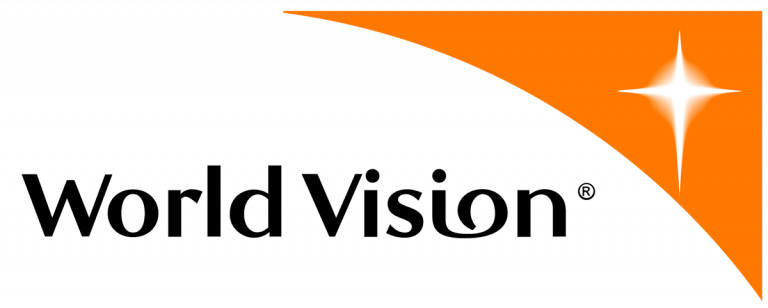Reflections on self-assessment from Somalia
World Vision Somalia recently undertook verification against the Core Humanitarian Standard (CHS). Brian Mathews Jumbe, Quality Assurance & Strategy Manager, talks us through how they found self-assessment.
Could you briefly introduce us to World Vision Somalia and its work?
World Vision Somalia (WV Somalia) are a relief, development and advocacy organisation dedicated to working with children, families and communities to overcome poverty injustice. The organisation has worked in Somalia since 1992 through a variety of emergency and rehabilitative programmes to address the emergency needs of communities. WV Somalia also addresses some of the underlying causes of vulnerability in those same communities.

At WV Somalia our overarching goal is to enhance the resilient wellbeing of 2 million children and their communities by 2020 through by improving health, nutrition and WASH outcomes for children, women and families. We also work to improve the quality of education and life skills for children and youth in the country, as well as running resilient livelihoods and food security programmes aimed at children. The final side of our resilience building work is strengthening peace in the locations we work in and increasing the protection of children from abuse and all forms of violence.
We implement these programmes directly where security allows us to maintain staff and offices. In locations where security is volatile, and access is limited we work indirectly through local NGO partners. We operate a strong partnering model in places we cannot reach, and also make sure to build partner’s capacity as part of the localisation agenda, and to achieve sustainability.
World Vision has taken a strong commitment towards verification by completing self-assessment at national level in several countries where they operate – what made you, the Somalia office, be willing to engage on this process?
We at WV Somalia feel that verification against the Core Humanitarian Standard (CHS) links to one of our main strategic imperatives, that of focusing our ministry for greater results. We are committed to aligning our work to the CHS to make sure that we are being efficient and effective in all our programming. Another driver for undertaking verification is increasing the accountability to the people we serve, as well as other key stakeholders.
“Undergoing self-assessment also provides a great opportunity for us all to dedicate some time for reflection and learning more generally.” Brian Mathews Jumbe, Quality Assurance & Strategy Manager.
What did you find useful for undergoing verification? Were there any specific tools, guidance, networks or organisations that particularly helped you to navigate the process and overcome challenges? How does the organisation work with World Vision International’s Global Centre when getting verified?
Having a clear understanding of each stage of the self-assessment, as well as the processes, overall and specific objectives under each stage was important to carrying out the self-assessment successfully. Involving all of our staff to contextualise the verification tools and processes helped the organisation as a whole to navigate the process. We also employed a local enumerator to support with our data collection. This approach reduced the risk of missing important information due to language or accessibility barriers with the communities we serve. I’d really recommend this for other organisations planning their self-assessment.
The World Vision Global Centre took the lead to make sure Country Offices subscribe to the CHS and that this is backed up with clear evidence. They really have supported our CHS verification initiatives. For us, they provided help and advice in the form of technical facilitation and sharing resources. The Global Centre are now supporting us to implement the improvement plan we developed with the CHS Alliance, based on the results of our verification.
What did you learn from self-assessing against the CHS? How did you find the process?
“The self-assessment verification process allowed us to reflect on how our stakeholders view WV Somalia, particularly in line with Commitment Nine: that communities and people affected by crisis can expect that the organisations assisting them are managing resources effectively, efficiently and ethically.
For example, our partners reported that we use our resources as per the purposes intended. While working with partners we regularly monitor project implementation plans and budgets to ensure communities get timely support. As a result of these efforts, fraud and wastage are rare in our programmes. We have developed and rolled out several financial and field monitoring tools to ensure the right people are getting the right entitlements.
Communities report that our activities are efficient, indicating that all our services are delivered in good time and in the right quantities. The entitlements have been consistent with what was promised at the beginning of the project.” Brian Mathews Jumbe, Quality Assurance & Strategy Manager
How are you putting this newfound insight into practice? Are you making any improvement as a result of verification?
The Self-Assessment revealed that WV Somalia was not doing enough to engage children and incorporate their feedback into our project design and implementation processes. WV Somalia is a child focused organisation and values feedback that promotes the integration of children voice into our programming. Based on this, we are now exploring ways to improve our accountability to children.
Looking to the future, how do you think we in the humanitarian and development sector can collectively improve quality and accountability in our work?
I feel that we need a deeper understanding of accountability in all of its dimensions, paired with more political will to improve. Integrating accountability indicators in our ongoing monitoring processes and reflection platforms should help to move this forward. We also need to all work towards being as objective as possible when undergoing CHS verification, even if for a self-assessment. Finally, we must include all of our stakeholders in our improvement processes – be truly participatory, and of course acknowledge where we do have gaps.
Learn more about getting verified against the CHS.
